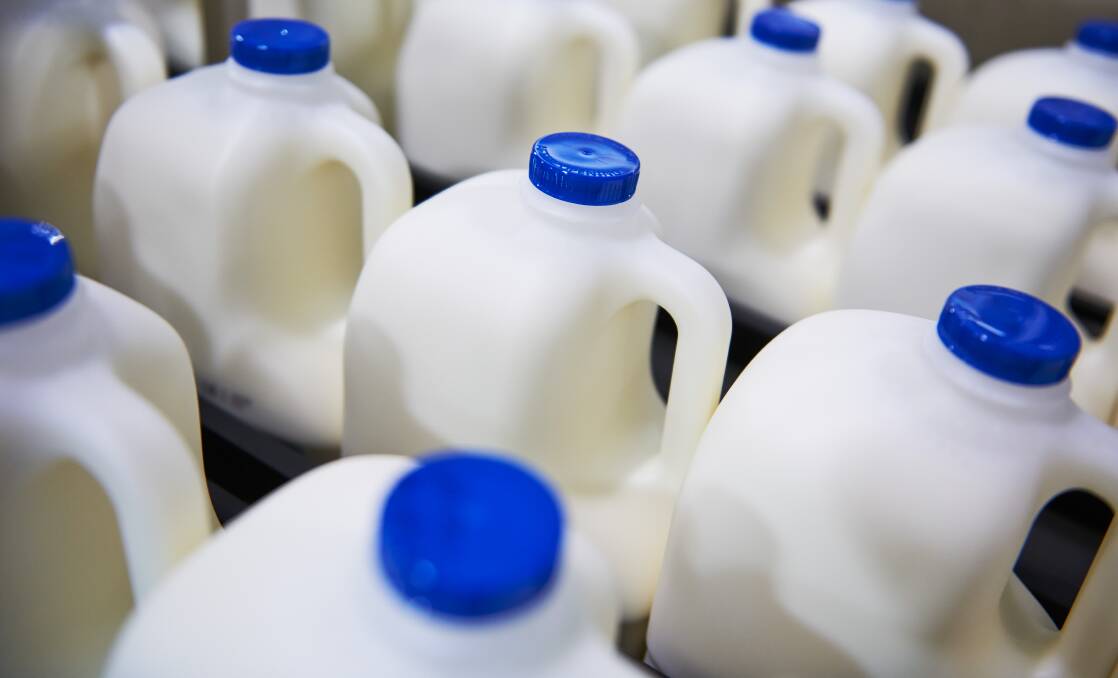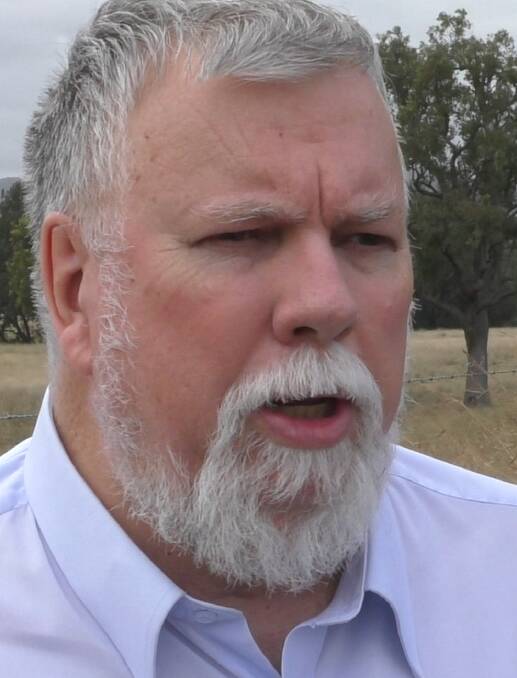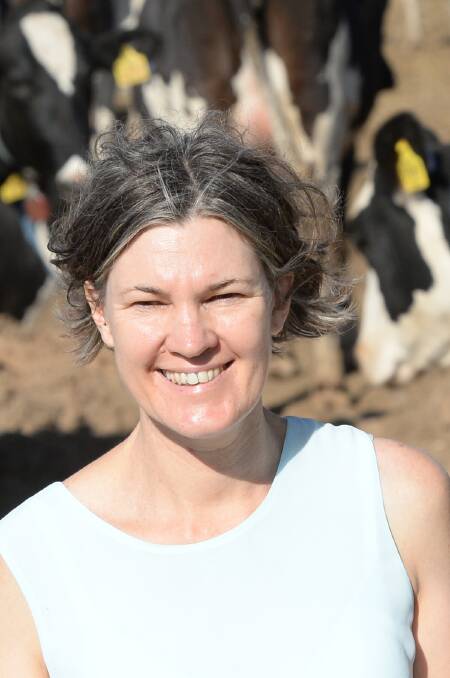
Following a NSW parliamentary inquiry’s scorching criticism of retail milk discounting, peak dairy farmer bodies are planning a combined campaign aimed at breaking the eight-year-old $1 a litre milk deadlock.
Subscribe now for unlimited access to all our agricultural news
across the nation
or signup to continue reading
The national move coincides with strong shopper responses supporting drought fundraising initiatives which temporarily added 10 cents/litre to certain discount supermarket lines.
Farmer organisations are now looking at how to persuade retailers to get serious about generating better returns on milk sales all the time.
Talks commenced in Melbourne just as the NSW Parliament’s Legislative Council recent damning report declared raw milk costs paid to the state’s dairy farmers were inadequate to cover production costs or allow reasonable farm profits – even in non-drought seasons.
Leading a 14-point recommendation and findings list was the parliamentary inquiry committee’s assessment that “a retail price of $1/litre for drinking milk has removed considerable value from the dairy value chain”.
More must be done to stop the devaluation of dairy products and to ensure a greater portion of the profit along the dairy value chain finds its way to farmers – before it’s too late
- Robert Brown, NSW Upper House dairy inquiry chairman
Analysts estimated the national “transfer” of farm earnings resulting from the combined impact of $1/litre milk and industry’s deregulation in 2000 now totalled about $1.2 billion annually.
As average retail milk prices fell, downward pressure was exerted on average farmgate returns.
Govt urged to counsel retailers
The committee urged the NSW government to work with retailers to build on mechanisms, such as the drought fund raising levy on milk products, to ensure retail prices took accounted for production cost increases to farmers.
NSW is Australia’s second largest dairy farming state after Victoria, with a sizeable portion of its 365 days a year, 1.12 billion litre milk output servicing fresh milk markets.
Inquiry chairman, Robert Brown, said his committee feared for the industry’s sustainability and farmer wellbeing after meeting producers in regional locations, and receiving industry submissions.

“More must be done to stop the devaluation of dairy products and to ensure a greater portion of the profit along the dairy value chain finds its way to farmers – before it’s too late,” he said.
Coles and Woolworths raised about $8.4 million for drought relief projects in just over three months by implementing marginal price increases on some discount label milk lines late last year.
“It’s been positive to see supermarkets respond to the drought and acknowledge the high cost pressures on milk production, although we’d have liked it to last longer than Coles’ short term publicity stunt,” said Queensland Dairyfarmers Organisation’s, Sarah Ferguson.
“We’ve seen a consumer trend towards buying these milk lines – shoppers certainly aren’t baulking at paying an extra 10 cents.
“Consumers showed they want to support milk brands that help farmers.
“That could now be achieved on a sincere scale by simply lifting all private label milk prices.”
Supermarket label milk controversially dropped in price to $1/litre after Coles launched its “Down Down” discounting push in January 2011.
The recent NSW parliamentary inquiry summary said it was abundantly clear to farmers and casual observers “selling milk for $1/litre has removed considerable value from the dairy value chain”.
Free market failing
“It’s clear in recent years the market has failed farmers and the (NSW) industry could be brought to collapse,” said chairman, Mr Brown.
NSW Farmers dairy committee chairman, Erika Chesworth, said while drought levies on a few supermarket milk lines provided some farmers with a little financial relief to continue farming, “it will not be enough in the long run”.
“NSW Farmers genuinely wants to work with retailers to implement long term solutions to ensure the industry is sustainable and farmers get a fair return for their hard work,” she said.
RELATED READING:
A pre-Christmas meeting between Australian Dairy Farmers and its state affiliates set the scene for a combined farm sector drive to rally public support and get retailers to build more value into their long term contracts with processors bottling house brand milk.
Coles’ main private label supplier Murray Goulburn is now owned by Canada’s Saputo, which has questioned the sense in selling fresh milk at such low prices.
If supermarkets can change consumer behavior on free plastic bags, they should be able to convince shoppers that milk prices are unethically low
- Erika Chesworth, NSW Farmers
An ADF spokesman said the farmer bodies were not privy to how processor-retailers contracts were set, but given the Coles-MG deal was promoted as a 10-year arrangement, it was assumed new deals or major adjustments to current arrangements were now being contemplated – making it a good time to publicise the problem.
Mrs Chesworth said her own family’s books showed milk payments had not changed in 10 years, yet almost every production cost was 20 per cent to 30pc higher.

Drought had exposed just how tenuous dairy industry survival had become.
She noted while supermarkets went to great lengths to promote themselves as good citizens implementing drought help donations, bans on free plastic shopping bags and the like, drought milk levies were not what farmers wanted.
“We want retailers to be part of long term solutions to build a sustainable dairy industry by ending $1/litre milk once and for all,” she said.
“If they can change consumer behavior on free plastic bags, they should be able to convince shoppers that milk prices are unethically low.”
The dairy sector’s sustainability was an issue just as tangible to consumers as any goal to reduce plastic waste going into our oceans.
“Given shoppers now willingly pay for four or five plastic bags at the supermarket checkout, I can’t see why paying a fair price for milk is such a big hurdle,” Mrs Chesworth said.
I’m more convinced Woolworths is looking more carefully at their relationship with farmers and finding a long term way forward
- Shaughn Morgan, Dairy Connect
Dairy Connect chief executive officer, Shaughn Morgan agreed if retailers were genuinely concerned about the impact of drought they should look at where and how their milk contracts impacted on the industry’s long term viability and capacity to future-proof itself.
“I think Aldi and Coles in particular have shown a blatant disregard for what farmers are going through,” he said.
“I’m more convinced Woolworths is looking more carefully at their relationship with farmers and finding a long term way forward.”
Last month federal Agriculture Minister, David Littleproud, said Coles should immediately reintroduce its drought milk levy payments to help farmers and Aldi should stop acting like a foreign company with no care.
He said Woolworths’ attitude was not perfect either, but at least it had not abandoned its milk fund raising levy on December 31.
- Does this article interest you? Scroll down to the comments section and start the conversation. You only need to sign up once and create a profile in the Disqus comment management system for permanent access to all discussions.


